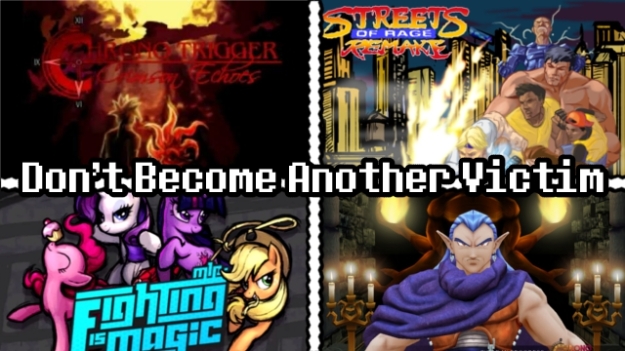 Disclaimer: The Wired Fish does not promote copyright/trademark infringement nor encourage it. We still recommend contacting the original content holders on projects you’ll be undertaking should the need arise, and to abide by the law if a Cease & Desist is sent. Content holders are obligated to contact the author of this article should you not agree with this article. As with all of The Wired Fish, anything expressed on this site falls on the individual authors and not The Wired Fish as a whole nor our host WordPress.
Disclaimer: The Wired Fish does not promote copyright/trademark infringement nor encourage it. We still recommend contacting the original content holders on projects you’ll be undertaking should the need arise, and to abide by the law if a Cease & Desist is sent. Content holders are obligated to contact the author of this article should you not agree with this article. As with all of The Wired Fish, anything expressed on this site falls on the individual authors and not The Wired Fish as a whole nor our host WordPress.
On Friday, February 8, 2013, one of the most popular and most polished fangames in the brony community, MLP: Fighting is Magic, was served a cease and desist order from Hasbro, the makers of the My Little Pony franchise. It caused a massive ripple effect across both the brony community and the fighting game community. Mane6, the developers of Fighting is Magic, took steps to make sure that they would be in good standing with Hasbro when they started developing the game in 2011, namely by not profiting off the game and not accepting any donations from fans. Any donations that were brought up from tournaments went straight to charity. They stated this on their FAQ page when it was still up. While it was believed that Hasbro had no problem with the game (FAQ gone to confirm this), last Friday’s event proved otherwise.
So once again the topic of fangames has hit the forefront of the gaming periphery. Fangames are a form of expression, a way of showing adoration for a show/videogame/movie you like. In other words, it is another form of fanart. Unlike the typical form fanart – the most common being drawings – fangames take more time to make and are generally much lower in quantity. But, like some fanart, many fangames tend to be rather amateurish and crude, either making something poorly from scratch or poorly reusing assets from other games. But there are some out there that excel beyond the norm, creating new content or using currently available assets and making something equal to or beyond the quality of the original. It’s these games though that tend to get the dreaded cease & desist order, with companies fearing it being a little too close to their product.
